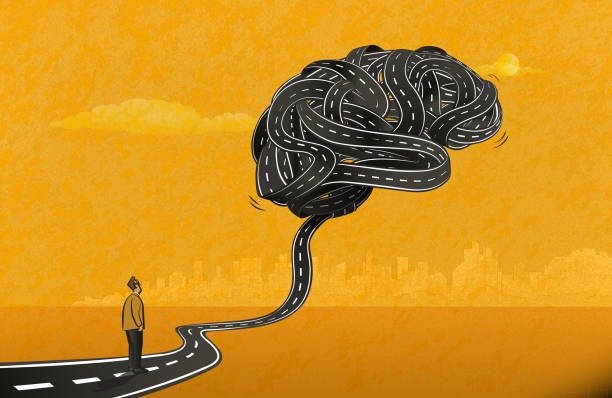In matters of clinical judgement and genuine uncertainty, a middle path can emerge—giving in to neither indulgence, nor self-denial

An elegant family of five walked into my office. The patient was the 80-year-old matriarch; let’s call her Auntyji. She was dressed in a bespoke white and gold salwar kameez with her hair tied back in a school teachery bun. She sat upright in the chair in front of me while her two daughters, probably in their fifties, planted themselves on either side. The two dutiful-looking sons-in-law accompanying them plonked themselves on the examining bed. “We’re two brothers married to two sisters,” one of them spoke up, introducing the fam jam. “How’s that going for the four of you?” I digressed even before trying to find out what was wrong with Auntyji, in a bid to calm the nerves that were palpable in the room. “Well, let’s just say everything has its pros and cons!” one daughter replied. “But there are more pros for sure,” the men jumped in to save the day.
“So, what brings you here?” I asked, finally turning to Auntyji. “I’ve been forgetting stuff,” she said, taking charge of the conversation. “Sometimes I feel giddy and sometimes I have some imbalance while walking,” she continued. “We’ve discussed it, and we don’t feel there’s anything wrong as far as her memory goes,” one of the daughters provided her perspective. “But I feel something is not right with me,” she asserted.
I examined her in detail and ascertained that her strength and co-ordination were good. “We’ve done an MRI,” a son-in-law pulled out the films and I raised them against the beaming light of the October sun peering through my window, which I often prefer to the boring white light of an X-ray box. “You have a 3 cm tumour in your left temporal lobe,” I said, pointing at it, “but it’s mostly arising from the covering of the brain called the dura and not from the substance of the brain itself, making it not malignant,” I went on to explain. It was a meningioma – arising from the meninges or the outer covering of the brain. “However, the swelling around it is a little more than normal,” I cautioned. I wanted to give all the details while I tried figuring out in my head what the best advice would be.
“We know all this,” the other son-in-law interjected. “We’ve come here for a second opinion, or rather, a third,” he acknowledged. “Because we are very confused,” his wife added. “Let me explain the conundrum,” the son-in-law went on. “We went to a senior doctor in one hospital, and he said we could leave this alone. ‘It grows at 1-2 millimetres a year and she’ll pass away from natural causes before the tumour can do anything to her’ were the doctor’s exact words,” he told me. They were then forced to take a second opinion by their extended family from another equally senior and renowned neurosurgeon in another hospital. “He said, ‘This needs to be operated upon at the earliest, because she could have a seizure and the brain swelling could have deleterious side effects; it’s better to remove it while she’s well rather than when she has more problems,’”, reiterating verbatim what the second doctor had said. “That’s why we are so flummoxed,” the daughter added, while Auntyji patiently waited for the verdict of someone with 25 years less experience than the other two stalwarts in the field.
Strange as it may sound, this is an age-old occurrence in medicine, that doctors, just like people, will have differing opinions on how to proceed regarding something. I have seen it time and time again, in my field and beyond, that medical professionals with identical qualifications and extremely similar levels of experience will often present diverse views on what to do next for a patient. We call this clinical equipoise – a state of genuine uncertainty. I have seen it with back pain: Some doctors will prescribe bed rest, while others completely denounce it. Cardiac procedures present the same battle: Some doctors prefer to stent while others simply give you blood thinners. In obstetrics, certain doctors are caesarean happy while others will have you labour it out. Like in many aspects of life and living, these seemingly contradictory suggestions are neither right nor wrong; they are simply honest but varying perspectives. I began to realise for the umpteenth time how hard it is for the common man to make decisions about their health when such conflicting opinions are presented. “Use your intuition, not your logical mind, when making important choices,” my wife always tells me.
“There is a grey zone in medicine,” I clarified to Auntyji and family. “When there is no conclusive evidence toward one treatment paradigm over the other, surgeons tend to use their clinical judgement and experience to give you a recommendation. Unfortunately, sometimes, the true nature of the disease is only revealed in the due course of time,” I explained. Just like some people, I wanted to add, but refrained.
I could either agree with one of the two eminent doctors or present my own version and hope that I did not leave them even more confused than when they arrived. The Buddha in me decided to take the middle path, staying away from the indulgence of jumping into surgery and the self-denial of leaving this alone. “Let’s do some gait and balance physiotherapy for three months and see if she’s clinically better,” I suggested. “I want her to be as physically and mentally active as possible, and also to take a walk every day and get some sun,” I added the standard cures of many of life’s problems. “We’ll also repeat an MRI then to see if anything has changed in that time,” I decreed.
The only commonality between the Buddha and me is that even though I am younger, I feel just as old. Unfortunately, in the field of medicine, simply feeling old does not count as experience. Nevertheless, adopting the Buddha’s teachings that day brought with it a certain degree of peace. I stayed non-attached from either extreme – surgery and doing nothing – and assumed the eight-fold path with mindfulness.
The family looked reassured and immensely relieved with the middle path too, which, in my opinion, was the right thing to do. This is what most therapists also endorse: When in doubt, wait it out. It is still too early to say if this was right or wrong, but the decision to wait comes from a good place, and the urge to do what is best for the patient persists. What happens to Auntyji, whether she or her MRI worsen in 3 months’ time or stay the same, and the decisions we take subsequently, will be revealed by time.
Auntyji folded her arms with grace and dignity to thank me. As she left with all her children, one of them said, “Thank you for allowing us to find a middle way.” I couldn’t help myself. “Two brothers marrying two sisters is rather extreme, so it was time for something milder,” I joked, as we all had a bit of a laugh.





11 thoughts on “The Surgical Confusion”
I was studying some of your posts on this website and I believe this web site is
rattling informative! Retain posting.Blog money
Севен кей у меня ассоциируется с понятным интерфейсом и спокойной игрой.
automaty online automaty online .
online casina online casina .
nejlep?? online casino nejlep?? online casino .
bonus za registraci bez vkladu bonus za registraci bez vkladu .
Замена замков спб актуальна после смены арендаторов, это безопаснее, чем оставить старые ключи.
Слоты от топ-провайдеров, 7кей казино включает NetEnt и Pragmatic, но не все новинки появляются сразу.
mostbet yechish muammo click https://www.mostbet69573.help
mostbet pul yechish vaqti https://www.mostbet69573.help
Сначала изучил обзоры и условия, затем зашел на 7к казино официальный сайт — интерфейс удобный, однако по минимальному депозиту есть более гибкие варианты.